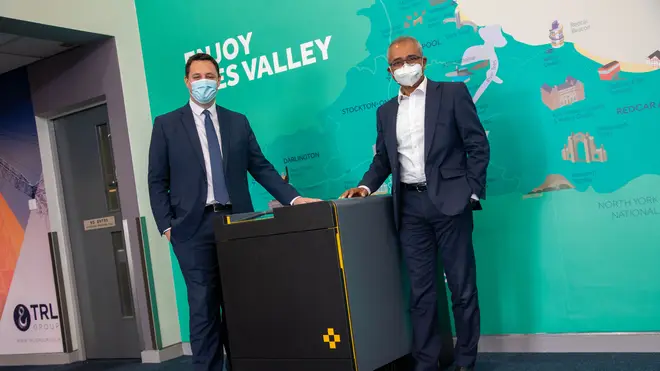
Shelagh Fogarty 1pm - 4pm
24 June 2021, 10:34

The machine, developed by high-tech specialists Kromek, analyses 400 litres of air per minute.
A new system to detect coronavirus in the air is being trialled at an airport.
Manufacturers Kromek have developed the technology to trace levels of Covid-19 within 30 minutes, which could be used in shops, lobbies and other busy public places.
The firm, based in Sedgefield, County Durham, produces radiation detection technology for the medical, nuclear and security sectors, and has now developed a biological threat detection system.
It works by drawing large volumes of air – 400 litres per minute – and analyses the biological content, which it then tests to detect the presence of coronavirus.
The developers said that by sensing the virus particles before individuals show symptoms, it can reduce exposure to the disease and limit the spread of localised outbreaks.
Kromek chief executive Dr Arnab Basu was “proud” the technology was being tested at Teesside International Airport.
He said: “The device we are trialling is the only technology of its kind which can autonomously detect the presence of Covid-19 from huge areas.
“The technology has the capacity to deliver near-real time monitoring of the presence and prevalence of the virus, enabling a return to normal life.”
Tees Valley mayor Ben Houchen said: “Kromek is a ground-breaking company that has adapted what it does best to develop this system in the face of the coronavirus pandemic.
“We’re delighted Teesside is not just one of the first airports, but one of the first buildings, to be trialling this new detector, which could be a real game-changer.”